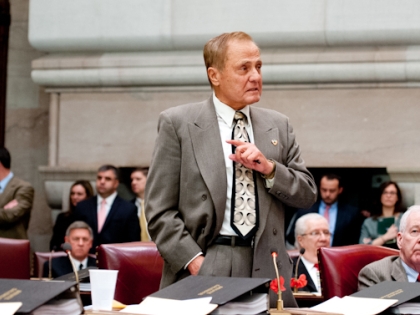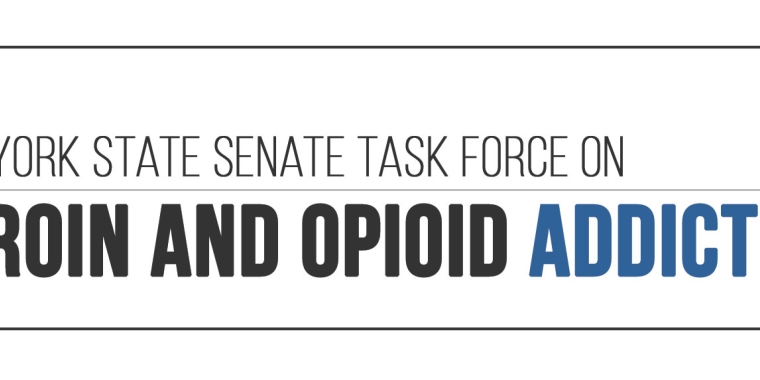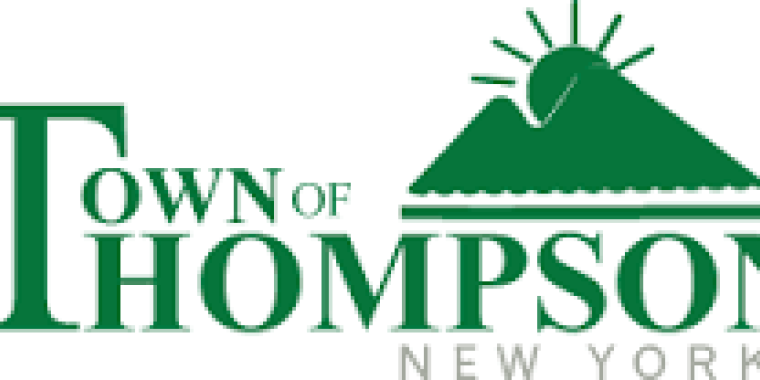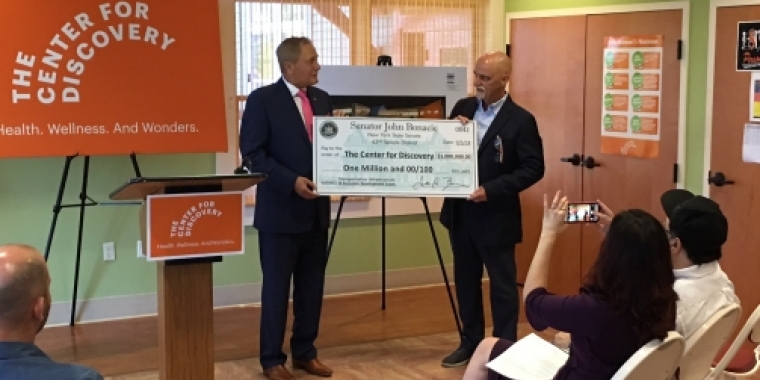
Senate Passes Comprehensive Package To Address Statewide Heroin and Opioid Crisis
John J. Bonacic
June 26, 2014
-
ISSUE:
- Controlled Substances

The New York State Senate passed a comprehensive package of bills to address the growing heroin and opioid crisis. The measures target prevention, treatment, and enforcement issues raised during extensive testimony provided by dozens of experts, parents, and concerned New Yorkers at the 18 forums held by the Senate Majority Coalition’s Joint Task Force on Heroin and Opioid Addiction.
Senate Majority Co-Leader Dean Skelos said, “The comprehensive approach of the measures in this package will help ensure treatment for those affected by heroin and opioid addiction, prevent the spread of drug use, and give law enforcement the tools they need to get heroin and opioids off our streets. I thank Senator Boyle, who deserves much of the credit for highlighting this issue in his role as Chairman of the Senate's Joint Task Force on Heroin and Opioid Addiction at 18 forums conducted throughout New York State, Vice-Chairs Michael Nozzolio and David Carlucci, and all the members who participated in this process. Passage of this legislation will protect families from this scourge on our communities and save countless lives.”
In March 2014, New York State Senate Majority Coalition Co-Leaders Skelos and Klein created the Joint Task Force on Heroin and Opioid Addiction, chaired by Senator Phil Boyle (R-C-I, Suffolk County), to examine the alarming rise in use of heroin and opioids that has claimed lives and hurt families across New York State. Over nine weeks, task force members held 18 forums throughout New York where they spoke with more than 200 panelists, and listened to over 50 hours of testimony to prepare an extensive report on heroin and opioid addiction in the state.
Senator Phil Boyle, Chairman of the Senate Committee on Alcoholism and Drug Abuse, said, “For countless New Yorkers struggling with heroin and opioid addiction; for the parents who fear for the health and safety of their children; and for our law enforcement officials combating drug dealers profiting from our tragedy, this package of legislation marks a historic day. I am so proud to be a part of this legislation and I want to thank Governor Cuomo, Senators Skelos and Klein, all the members of the Joint Senate Task Force on Heroin and Opioid Addiction and my colleagues in both Houses of our State Legislature for giving this heroin epidemic such a high priority.”
Task force members include Vice-Chair David Carlucci (D-Rockland), Chairman of the Senate Committee on Mental Health and Developmental Disabilities; Vice-Chair Michael Nozzolio (R-C, Fayette), Chairman of the Senate Codes Committee; Senator Greg Ball (R-C-I, Patterson), Senator John Bonacic (R-C-I, Mount Hope), Senator Simcha Felder (D-Brooklyn), Senator Pat Gallivan (R-C-I, Elma), Senator Martin J. Golden (R-C-I, Brooklyn), Senator Joseph A. Griffo (R, Rome), Senator Kemp Hannon (R, Nassau), Senator Andrew Lanza (R-I-C, Staten Island), Senator William Larkin (R-C, Cornwall), Senator Betty Little (R-C-I, Queensbury), Senator Carl L. Marcellino (R, Syosset), Senator Kathleen A. Marchione (R-C, Halfmoon), Senator Jack Martins (R-C-I, Mineola), Senator George Maziarz (R-C, Newfane), Senator Thomas O’Mara (R-C, Big Flats), Senator Michael Ranzenhofer (R-C-I, Amherst), Senator Patty Ritchie (R-C, Heuvelton), Senator Joseph Robach (R-C-I, Rochester), Senator Diane Savino (D, Staten Island/Brooklyn), Senator James L. Seward (R-I-C, Oneonta), Senator David J. Valesky (D, Oneida), and Senator Cathy Young (R-I-C, Olean).
Task force forum participants examined the issues surrounding the increase in drug abuse, addiction and drug related crimes; solicited input from experts and other stakeholders; and developed recommendations that were used to create a comprehensive package of legislation to address these issues. The task force recommendations are very similar to, or complement all of the bills passed today, which include:
Preventing Opioid Abuse and Overdoses
- Increasing public awareness (S7911, Sponsored by Senator Boyle): Requires the Office of Alcoholism and Substance Abuse Services (OASAS) and the Department of Health (DOH) to establish the Heroin and Opioid Pain Addiction Awareness and Education Program. The Program would utilize social and mass media to reduce the stigma associated with drug addiction, while increasing public’s knowledge about the dangers of opioid and heroin abuse, the signs of addiction, and relevant programs and resources.
- Establishing school drug prevention programs (S7910, Sponsored by Senator Martins): Allows for age-appropriate information about the dangers of illegal drug use to be added to junior high school and high school health class curriculums.
Senator Jack Martins said, “This growing epidemic is affecting every community on Long Island and throughout New York State. Ensuring children receive timely, updated educational information about the dangers of drugs and giving enforcement officers stronger tools to catch those who are distributing drugs will help save lives. I applaud my colleagues for working together to keep our communities safe.”
- Increasing the effectiveness of overdoses prevention (S7905, Sponsored by Senator Marchione): Provides that naloxone kits distributed through an opioid overdose prevention program must include an informational card with instructions on steps to take following administration, as well as information on how to access addiction treatment and support services. Opioid overdose prevention programs provide those at risk of an overdose, their family members and their friends with naloxone kits and training on proper administration.
Senator Kathy Marchione said, “Passing these bipartisan bills addressing the growing threat of heroin abuse and addiction is a huge achievement. I am proud to sponsor one of the bills that ensures the proper administration of naloxone as it will help save a life in the event of an overdose. New York took an important step today in what will be a long journey of helping our fellow citizens who are struggling with the tragedy of addiction. From the beginning of this effort, I said it had to be above partisan politics, focus on solutions, and take a holistic approach to helping people by addressing prevention, treatment and law enforcement. This was exactly what we achieved. I was truly honored to serve on our Joint Senate Task Force on Heroin and Opioid Addiction and show that we can make state government work, and work better, for the people.”
Increasing the Availability and Efficacy of Addiction Treatment
-Creating a new model of detoxification and transitional services (S7904, Sponsored by Senator Hannon): Establishes the Opioid Treatment and Hospital Diversion Demonstration Program, requiring the development of a new model of detoxification and transitional services for individuals who are in of need support but may not need serious medical care, therefore reducing reliance on emergency room services.
Senator Kemp Hannon said: “This bill directs the Office of Alcohol and Substance Abuse Services to establish a new model of care, on a demonstration basis, to help those trying to detox from heroin when hospital-level care isn’t necessary. This diversion program will provide short-term, peer-supported, community-based treatment, and avoid unnecessary emergency room costs. By demonstrating new approaches statewide, OASAS will be able to study and report back on the effectiveness of these new models while, more importantly, addressing the needs of individuals suffering from addiction now.”
- Establishing a relapse prevention demonstration program (S7903, Sponsored by Senator Carlucci): Creates a Wraparound Services Demonstration Program, through which OASAS would provide referral services for individuals both during participation in substance abuse treatment programs and for nine months thereafter. These community supports, access to which is intended to prevent a relapse, include case management services addressing educational resources, legal services, financial services, and childcare services; peer-to-peer support groups, social services; family services; employment support; and transportation assistance.
Senator David Carlucci said, “Heroin addiction has been plaguing our communities for years. I am proud to announce that we have reached an agreement with the Governor, the Senate and the Assembly to make sure we have a package of bills that will deal with addiction. I am happy to say that working with parents and advocates in the Hudson Valley one of our specific pieces of legislation, the creation of wraparound services, will be passed into law. Someone who is suffering from addiction needs to have extra services when they get out of outpatient treatment to make sure that they don't relapse. Having this legislation on the books in New York will go a long way to make sure that people suffering from addiction get the help they need and deserve.”
- Enabling parents to seek services for children suffering from substance abuse (S7909, Sponsored by Senators Felder and Martins): Provides that a minor child alleged to be suffering from a substance use disorder may receive an assessment for such disorder as part of the Person in Need of Supervision (PINS) diversion services and may access a variety of services through the PINS diversion process.
Senator Simcha Felder said, “Heroin and opioid addiction does not discriminate across racial, ethnic, or socio-economic lines. An addict in the throes of an addiction destroys not only their health and their futures, but the lives of their family and friends as well. For every addict who doesn’t get the help they need, there is a progressive breakdown in the fabric of society-at-large. I am proud to have been part of the Senate Joint Task Force on Heroin and Opioid Addiction charged with tackling this devastating disease. I am hopeful that the comprehensive package of bills we have now passed on this issue will reverse the tide, and bring help and healing to those who are suffering from addiction.”
- Promoting the affordability of substance abuse services (S7912, Sponsored by Senators Seward, Hannon, Martins and Ritchie): Requires insurers to comply with federal substance abuse parity laws, strengthens and standardizes the utilization review process for determining insurance coverage for substance abuse treatment disorders, and requires insurers to continue to provide and reimburse for treatment throughout the appeals process.
Senator James L. Seward said, “When a heroin addict decides to seek help, it is a crucial turning point. My bill improves access to insurance coverage and ensures that moment won’t be fatally lost because of burdensome insurance paperwork, the denial of services by a bureaucrat who isn’t medically qualified to make such a decision, or drawn-out appeals. Overall, we now have a multi-prong strategy to combat this deadly epidemic that includes education and prevention, treatment, and tougher law enforcement.”
Senator Patty Ritchie said, “There are a significant number of people who are addicted to heroin and looking for help, but can’t get it due to insurance roadblocks. Access to treatment was one of the top issues raised during the recent Task Force forum held in Watertown, and I’m pleased that my bill to expand insurance coverage for treating heroin addiction will now become law, giving those who are seeking to break free from the scourge of heroin a fighting chance.”
Providing Additional Resources to Law Enforcement
- Assisting Health Department Bureau of Narcotic Enforcement Investigators (S7906, Sponsored by Senator Martins): Authorizes the Department’s Bureau of Narcotic Enforcement (BNE) investigators to directly access criminal histories of individuals suspected of criminally diverting prescription medications.
- Adding Fraud and Deceit of Prescription Medication to Penal Law (S7907, Sponsored by Senator Marcellino): Creates a new crime in the penal code of “fraud and deceit related to controlled substances” to crack down on doctor shopping, criminalizing behavior by those individuals who obtain or attempt to obtain a controlled substance or a prescription by misrepresenting themselves as a doctor or pharmacist, or presenting a forged prescription.
Senator Carl L. Marcellino said, “By creating a class A misdemeanor in the Penal law, we will give law enforcement a necessary and potent tool to prosecute doctor shopping for the purpose of obtaining illegal prescriptions. This legislation will reinforce the fight against prescription drug abuse by strengthening penalties against those who seek to profit from weaknesses in the healthcare system.”
- Creating the criminal offense of “criminal sale of a controlled substance by a practitioner or pharmacist” (S7902, sponsored by Senator Hannon): Creates a new crime in the Penal law - a Class C felony - when a practitioner or pharmacist uses his or her professional practice to unlawfully sell controlled substances.
- Making the "criminal sale of a controlled substance by a practitioner or pharmacist" offense eligible for prosecution under the enterprise corruption statute (S7908, sponsored by Senator Hannon) and allows for eavesdropping warrants, both tools for investigations into the illegal distribution of controlled substances.
Senator Kemp Hannon said: “In 2011, Dr. Li, who reportedly saw up to 120 patients a day, engaged in illegal prescribing practices resulting in the death of as many as 9 people, and prescribed more than 2,500 pain pills to the gunman who killed 4 people at a pharmacy in Medford, Suffolk County, was indicted under a penal law provision prohibiting the illegal sale of a controlled substances by a physician. Due to a loophole in the law, New York lacks similar provisions to address practitioners and pharmacists that illegally and knowingly dispense. This legislation, which is similar to legislation sought by the New York City Special Prosecutor which the Senate has passed for years, will close this loophole and equip law enforcement with the tools necessary to stop these bad actors.”
In addition to the bills passed today, the Senate and Assembly passed legislation (S6477B) to increase the use of the heroin antidote naloxone, which can be used to treat heroin overdoses onsite. By authorizing health care professionals to issue non-patient specific prescriptions for such medication to certified training programs and pharmacies, this bill would increase the number of people who have naloxone when it is needed most.
The bills will be sent to the Assembly.
Share this Article or Press Release
Newsroom
Go to NewsroomSenator Bonacic Announces $50,000 Grant for The Village of Ellenville
September 4, 2018

Senator Bonacic Announces $75,000 for the Town of Thompson
September 4, 2018

